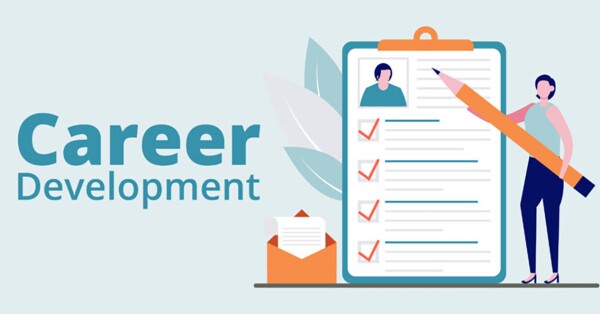Learn simple tips and tricks to write a great resume employers won’t be able to resist

Looking for a new job, a promotion, or a better way to represent your own business? Whatever stage of your career you’re in, the answers below can help you gain resume writing skills that will help you represent your experiences and skills in the best way possible.
1. Where do I start?
A resume (also known as a curriculum vitae, or CV) should include some standard information in a format that is easy to read. If you’ve taken PC 102: Professional Skills, you may recognize these general items that can be included on most resumes: personal/contact information, summary, skills, experience, and education.
2. Where can I include what I’ve done at BYU-Pathway Worldwide?
There are a lot of ways you can do this!
- Include any milestones you’ve completed in the Education section, including for PathwayConnect, certificates, and degrees.
- List specific courses you’ve completed that are relevant to the job you’re applying to. Include short descriptions of the coursework.
- Include applicable skills you are learning in your courses in the Skills or Personal Summary sections.

For example, BYU-Pathway student
Malvin said, “Most of the stuff was messed up and things were not in order. So just being there, putting things in order with spreadsheets, making it clear and easy for waiters and other people, it really helped.”
3. How do I describe my experience?
Your Experience section may include work or volunteer experience that is relevant to the specific job you’re applying to. Each position should be listed in reverse chronological order (your most recent at the top), with two to three bullet points describing the duties you performed. This makes it easy for the person reviewing your resume to quickly see how you can help them in the role you’re applying for. When writing these bullet points:
- Start with strong verbs. Not all verbs are created equal. Here are some examples of
strong and specific verbs to get you started. - Include numbers when you can. Numbers help illustrate the impact you made, whether it’s a number of tasks completed, an increase in the percentage of satisfied customers, or some other data point. You can find numbers relating to your experiences by talking to your previous/current employer or calculating honest estimates on your own. If you can’t include numbers, find another way to describe the specific impact or results of your work.
- Use language from the specific job description. Treat a job description or posting like an order for a pizza. When you order a pizza, you want the pizza to match your order exactly, right? Similarly, when you apply for a job, the company wants you to match their “order,” or job requirements. If your previous roles are different than the one you’re applying for, describe how the skills you gained match the skills they need.
4. What are my last steps?
View this
After drafting your resume, be sure to reread it yourself and have someone else review it if you can. Make sure your resume is:
- Is concise (preferably only one page)
- Is relevant (remove outdated experiences or skills that won’t be helpful in the job you’re applying for)
- Is consistent (check that things like font size and line spacing don’t change throughout)
- Has proper grammar and punctuation
These things will show your employer that you care about your application and that you are professional. After following these steps, you’ll be ready to send your resume to employers. Good luck!
Watch for the other articles in this series coming soon about networking and interviewing to learn about the steps that come after refining your resume!
To learn, practice, and apply career development skills, we encourage students to actively participate in PC 102: Professional Skills and GS 170: Career Development. Aligned with the skills these courses teach, we hope this series can help you progress in your career and learn practical tips to improve your life. For more specific advice, please connect with people in your same area and desired profession.